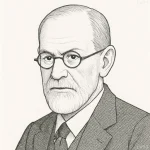“I may neither choose who I would, nor refuse who I dislike; so is the will of a living daughter curbed by the will of a dead father.”

- April 26, 1564 – April 23, 1616
- Born in England
- Playwright, poet, actor
table of contents
Quote
“I may neither choose who I would, nor refuse who I dislike; so is the will of a living daughter curbed by the will of a dead father.”
Explanation
This quote from Shakespeare’s The Merchant of Venice expresses the limitations and constraints placed upon the speaker by the will or decisions of others, particularly a dead father. The speaker, a daughter, laments that her choices are restricted—not by her own desires, but by the wishes of her father, who is no longer alive. “I may neither choose who I would, nor refuse who I dislike” conveys the frustration of being unable to choose one’s own partner or make decisions based on personal preference, as her father’s will dictates her actions. This creates a tension between personal desire and duty or obedience to the father’s wishes, highlighting the struggle between individual autonomy and societal or familial expectations.
In modern contexts, this quote reflects the idea of being bound by obligation or tradition, where one’s personal choices are restricted by external forces, such as family, culture, or the legacy of past decisions. For example, in some cultures, individuals—especially women—may feel pressured to conform to their family’s wishes in matters of marriage or career, even if it conflicts with their own desires. The quote speaks to the frustration of feeling that one’s freedom or agency is limited by forces beyond one’s control, whether those forces are family traditions, societal norms, or historical expectations.
Ultimately, this quote explores the tension between personal freedom and the constraints placed by external forces, such as family or tradition. It underscores the emotional conflict that arises when an individual is forced to sacrifice their own will for the sake of obligation or duty. The quote reflects a universal struggle of balancing autonomy with the expectations of others, especially when those expectations are rooted in the past or influenced by external authorities.
Would you like to share your impressions or related stories about this quote in the comments section?



